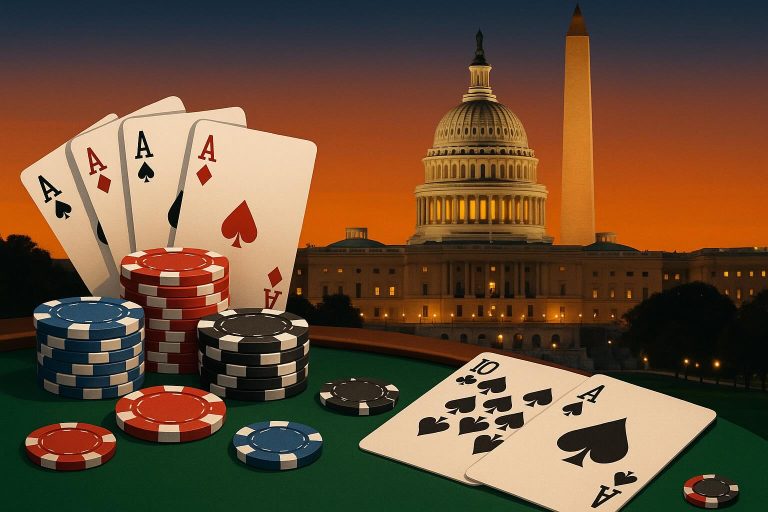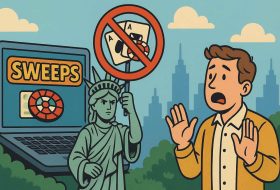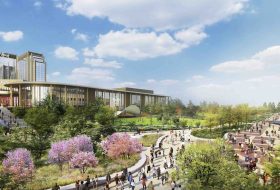
Washington, D.C., might soon join the club of cities where people don’t have to drive across state lines to play poker or hit 21.
Mayor Muriel Bowser has introduced new legislation aiming to legalize poker, blackjack, and commercial bingo in licensed venues around the city. The proposal is called the Poker and Blackjack Gaming Authorization Act of 2025.
What’s in the Proposal?
The proposal will permit regulated card game tournaments in licensed spots like hotels and local bars. Forget trekking out to those big box casinos in Maryland; the mayor wants that sweet, sweet gaming revenue staying right in the heart of the capital.
Under Bowser’s plan, any business hoping to deal poker or blackjack will need a two-year license from the Office of Lottery and Gaming. It starts with a $5,000 application fee and another $2,000 for each location, with cheaper renewal rates once you’re in the system.
The city also wants a 25 percent cut from poker and blackjack revenue, while bingo operators would pay a lighter 7.5 percent since the stakes are smaller.
To make sure nobody cheats, the Office of Lottery and Gaming is getting a small financial shot in the arm, about a half million dollars, to hire a squad of four new regulators. Bowser says this is just about being grown up about fun. As one official put it, “Everyone is already playing. It is high time DC stopped leaving money on the table.”
Why D.C. Wants In
The heart of the mayor’s argument is simple: The city leaking money like a sieve.
For years, D.C. residents who wanted to play a few hands of twenty-one had to drive across the line to the gambling palaces of MGM National Harbor in Maryland or even further into Virginia.
Every dollar spent on a chip, a cocktail, or a hotel room across the river is a dollar not funding D.C. schools or patching D.C. potholes. The mayor’s proposal is designed to recapture those lost dollars and give tourists one more reason to linger after they’ve finished their museum tours.
This isn’t just about the tax money; it’s about the vibe.
How D.C. Compares
If D.C. moves ahead, it would join a small group of jurisdictions with legal card games but limited casino presence.
New Jersey remains the gold standard, with online casinos, live poker, and a clear tax structure that pours millions into state coffers. D.C.’s approach is more cautious, as it focuses on tournaments and venue-based play rather than full casinos.
New York has yet to legalize iGaming but has shown a willingness to expand sports betting. California recently shut the door on sweepstakes casinos to protect tribal gaming rights, showing how different the motivations can be from one state to the next.
D.C.’s move feels less about regulation and more about competition. It is not protecting a monopoly; it is trying to build one of its own.
What’s Next?
The bill still needs approval from the D.C. Council. Supporters say the city is only catching up to its neighbors. Critics warn about addiction and question whether poker tables are the best fix for a tight budget.
If it passes, licensing could begin as early as next summer, with games up and running by late 2026.





